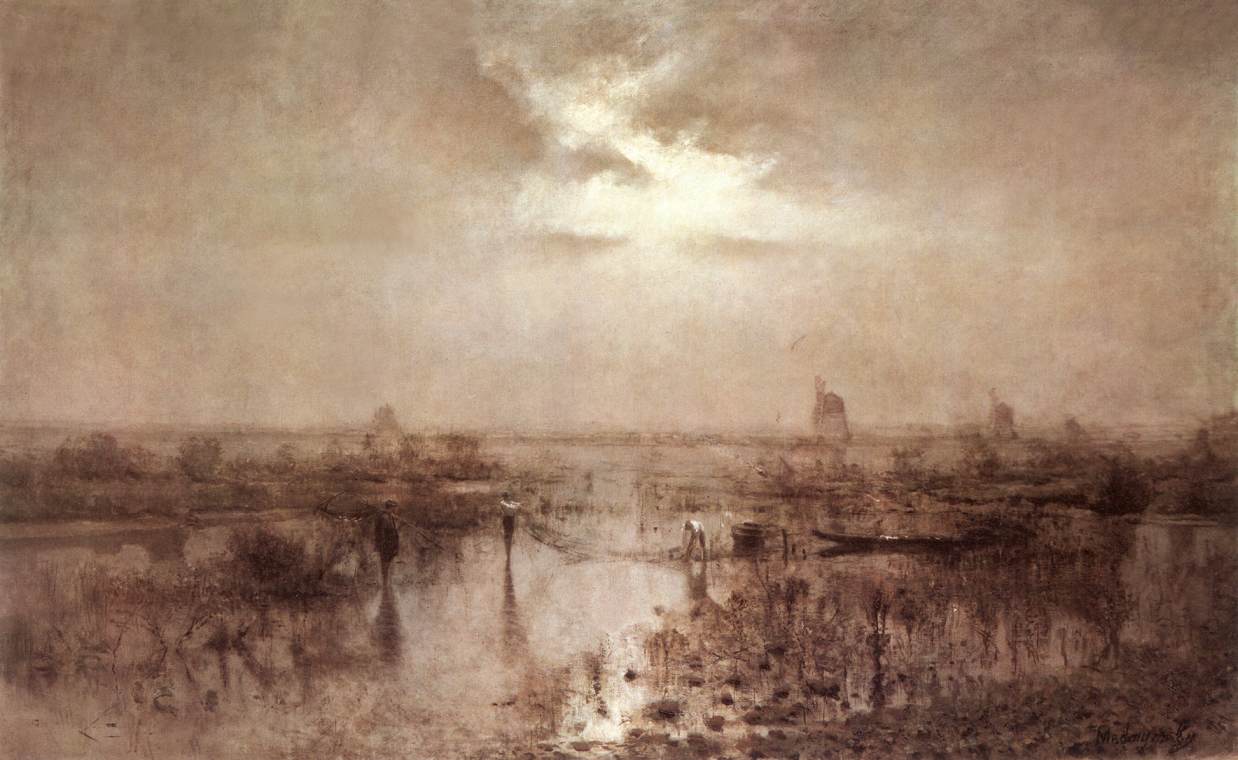As I mentioned in my first post about The Wandering Baron, Mednyansky possessed an uncanny mastery of light, and this mastery provides his landscapes with a richness and vitality I have rarely encountered, not just in Hungarian painting, but in painting in general.
Landscape painting normally relies heavily on the quality of physical geography, which helps explain why most landscape painters choose to depict impressive, magnificent, or beautiful geographical features such as towering mountains, deep valleys, rolling hills, or lush forests. Mednyansky certainly has his share of these, but unlike most landscape painters, Mednyansky did not rely exclusively on impressive geographical features to bring beauty onto the canvas - The Wandering Baron could discover the sublime in even most mundane or nondescript landscapes.
Fishing on the Tisza (1880) is a good example of this. The Tisza is one of Hungary's main river courses, second only to the Danube. Though it flows through some of the country's most attractive landscape features, Mednyansky chose to ignore these and focused instead on a nondescript, marshy riverbank scene in this painting.
What makes this landscape painting fascinating for me is its seeming lack of landscape. A few bushes, some marshland, reed pockets, and three or four hazy windmills are the only features depicted on the canvas, yet Mednyansky is able to transform this rather mundane scene into something spectacular. Rather than mute what could be described as an already dull scene, Mednyansky's choice to limit the color spectrum to sepia-gray tones creates an ethereal atmosphere, made all the more ethereal by the "swale" of light puncturing the overcast sky above the fishermen.
In essence, Mednyansky is able to find beauty even in landscapes that appear to offer very little in the way of beauty. Capturing the beauty inherent in a breathtaking mountain scene is one thing - finding beauty in a marsh scene that could be described as anything but breathtaking is another matter entirely.
Sheer brilliance.


 RSS Feed
RSS Feed

